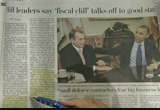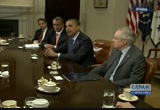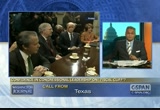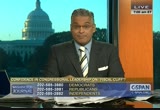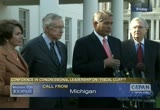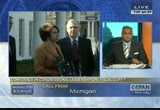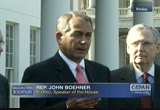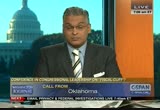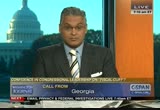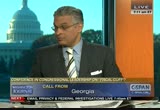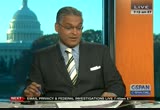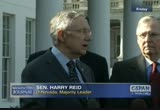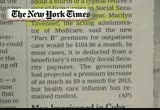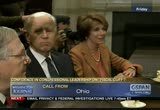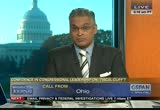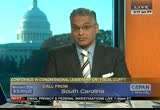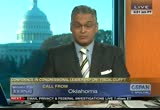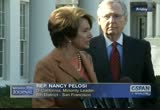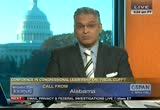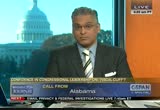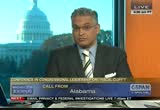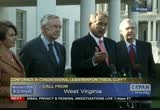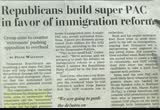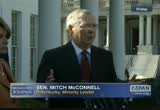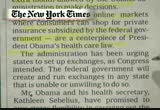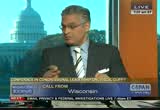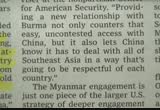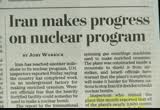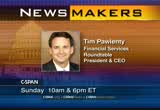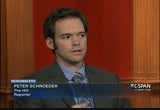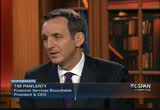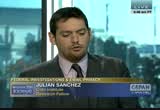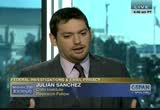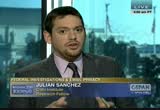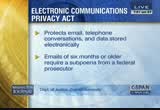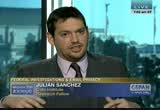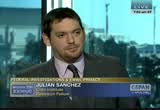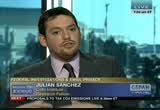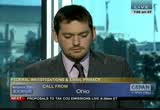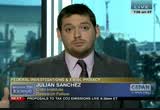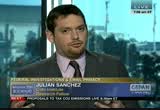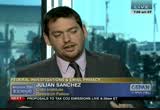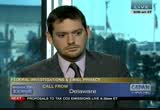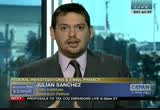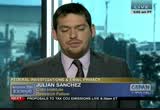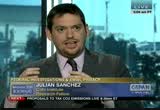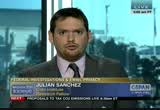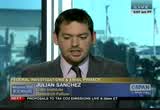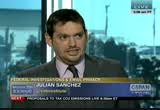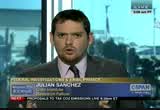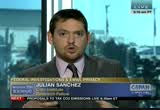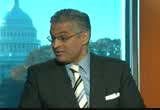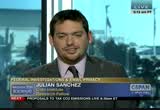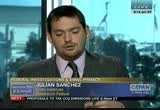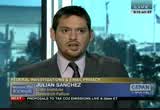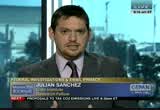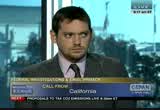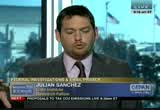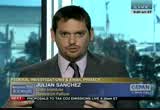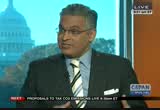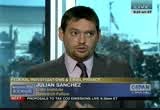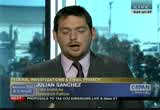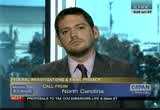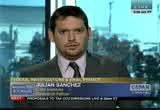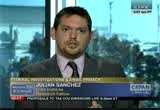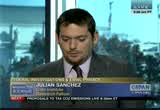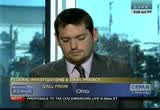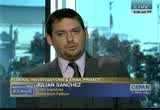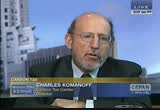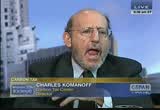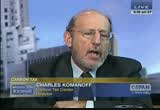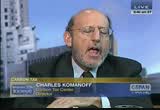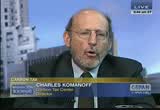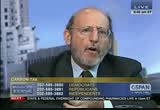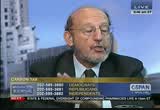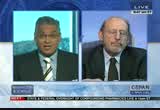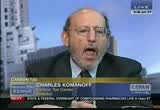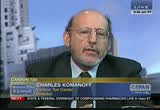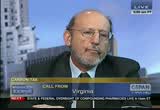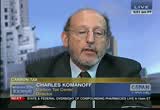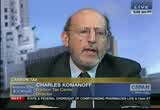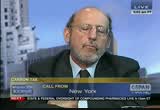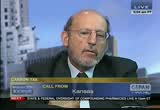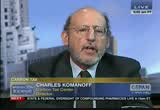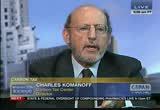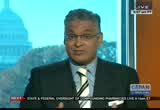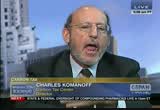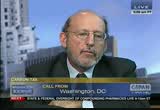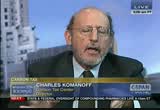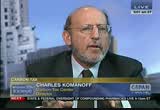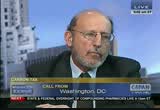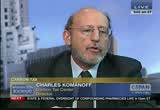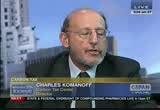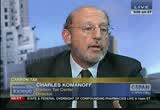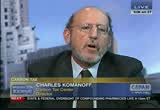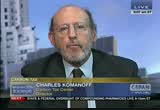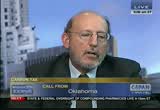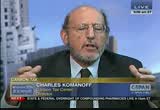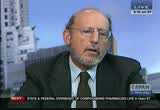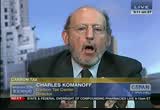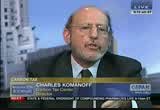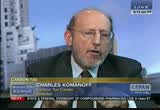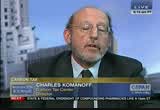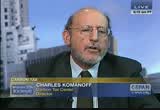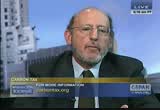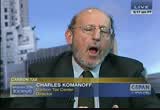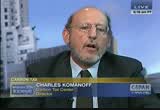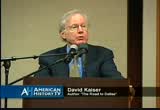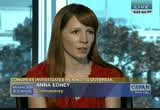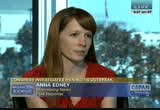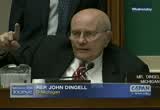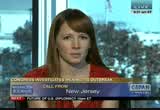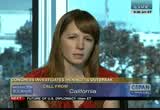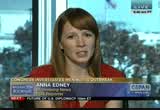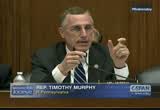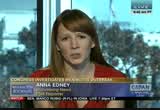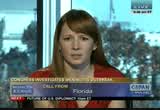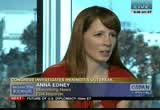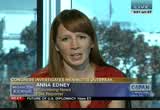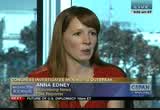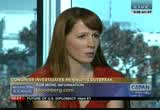tv Washington Journal CSPAN November 17, 2012 7:00am-10:00am EST
7:00 am
proposals to tax co2 emissions as a way to raise revenue for the treasury. and they look at how states and federal government oversees the industry known as compound and pharmacies. "washington journal" is next. host: medicare premiums are set to rise. president obama sets a trip to asia today. he and other capital hill leaders sat down yesterday.
7:01 am
a special willingness to work together. for our first 45 minutes we want to see about your ability and confidence and congressional leaders. here is how you can call in this morning two-way end. -- two ways. you can tweet us or send an email. we invite you to check out our facebook page. the headlines for this meeting yesterday reflect the same type of town seen in the washington post this morning.
7:02 am
7:03 am
new york times, they have a listening are at least pictures of the key leaders that will be involved in this process. to show you where they stand specifically on some issues, here is the president saying he will reject any bill that extends tax cuts for the wealthy. here is john boehner who has said raising tax rates is unacceptable and a new revenue should be generated by economic growth spurred by a simpler tax code and that closes loopholes and and deductions. there are some other leaders involved in this project. what do you think they will be able to do to keep the fiscal cliff from happening by the end of the year? that meeting taking place at the
7:04 am
white house. here is some video from it. if you are looking at that again and you want to wait and on this topic, you can call in. your confidence on congressional leadership on the fiscal cliff. let's hear from eloy. caller: i just have a comment. they were talking about cuts in medicare and social security benefits for kids. why do we not start with their pensions? put them on social security like we are. host: you speak about a specific issue. would you think about the ability of leaders to come together? caller: i hope they do.
7:05 am
this country is going down. pay your share. host: fairbanks, alaska. hello. caller: i have confidence that zero of these guys did something done. where is our leadership? we are just going to kick it down the road. everybody has to have free stuff. nobody wants to take care of themselves. host: what is one thing you would say is a reason they will not make it happen? caller: they will kick it down the road. that is all they are going to do. they have been taking it down the road for 15 years. that is all they do. they have it made it.
7:06 am
the president is leaving the country. host: some type of deal are at least the details are being worked out by congressional leaders and their staffs. there are hopes they can get this done before the december 31 deadline. allen is from michigan and joins us on the independent client. -- independent line. caller: i have no confidence in the leadership of the republicans and democrats. they are spending on more militarism. this spending on wars is a total waste of our nation's wealth. they are squandering the wealth of this country instead of spending it on things people need like a real health care reform and child care and education. they are wasting money on all of
7:07 am
these wars. stop these ores. obama wants to get us into more wars. all of this militarism. host: white t think the mentality is different this time, or at least their ability to come to a result, why do you think that will not happen this time around? caller: obama and the democrats and republicans they all represent wall street. they do not represent the working class. the working people are being indebted with all the burdens of this country. this is not right. 98% and this country are forced to solve the problems that were operated by the 1% and 2% of this country who are getting rich off of our problems and these wars. anybody can look at the budget of this country and see the majority of our budget is spent
7:08 am
on militarism and wars and not on things people need. this is a crime against humanity. host: you see there on the television screen congressional leaders meeting after the meeting at the white house. one of the folks who spoke yesterday was speaker john boehner talking about the framework that was outlined in the media. [video clip] >> to talk about america oppose the fiscal problem, i outlined a framework that deals with reforming our tax code and reforming the our spending. i believe these remarks i have outlined in our meeting is consistent with the president's call for a fair and balanced approach. to show our seriousness, we have power revenue on the table. as long as it is accompanied by a significant spending cuts.
7:09 am
while we will continue to have revenue on the table, it will be incumbent from my colleagues to show the american people we are serious about cutting spending and solving our fiscal dilemma. i believe we can do this and avert the fiscal cliff that is right in front of us today. host:off of twitter -- host: joe, are you there? caller: yes, what i would like to know is it seems like none of them can come to a conclusion on anything. why do we that start taking their pay and deducting their pay until they can come to an agreement? or tell them all to get out of
7:10 am
there and leave it up to the americans to vote as if we were voting to the president. host: it sounds like you do not have much confidence at all. caller: how long have we been doing this? this country has gone down further and further every year. host: you do not see willingness this time around as far as both parties are concerned? caller: i am from oklahoma, but i am kind of like the missouri state. show me. host: another tweet from cindy -- jeremiah, you are up next. caller: i just had a comment. i do not think they are prepared to deal with the fiscal cliff. before 1980, the tax system was balanced. at some point they changed the
7:11 am
entire thing to benefit the wealthy. what they have done is taken the government workers and they have taken the private workers and made them make the stuff. they are selling stuff to the government workers that benefit the wealthy. the difference between the private sector is and what the government workers and what they make, that is the profit. that is what they do not want to balance the budget. the profit is in the interest of the wealthy. host: at the leadership level there is no interest in fixing these things because of the money involved? caller: yes, that is why you have mass poverty and food stamps. they cannot afford the things they are doing. pour and i worked really hard. a lot of people that are poor and work really hard and they are basically making stuff for
7:12 am
7:13 am
mr. day is harry reid. he talked about cornerstones or having cornerstones and being able to work something out. [video clip] >> i feel very good about what we were able to talk about in there. we have the cornerstones of being able to work something out. we will both have to give up some of the things that we know are a problem. we arrive at it. we all know something needs to be done. we are all going to do it now. we feel very comfortable with each other. this is not something we will wait until the last day of december to get it done. we have a plan and we will move forward on it. we will work during the thanksgiving recess. we will meet when we come back the first week. i think it is a constructive
7:14 am
7:15 am
ohio, this is the independent line with poland. -- owen. caller: there is only one person that was elected nationwide. the president campaigned on a platform to raise the taxes on the wealthiest of americans. americans bought that idea. willing to pay 2%, 3%, 4% more. most wealthy people are are so willing to pay more. i am not sure why they are trying to protect the wealthy who are saying, listen, i am willing to pay a little more. the reason why is they have an
7:16 am
obligation to grover norquist. end wars in afghanistan early. we can save $2 billion a week. everybody pays a little bit more, at 2%, 3% more. we will also have to make some changes to the entitlement program. in everybody has to get a little. i am making less than $100,000 a year. i am willing to make a little bit more. most wealthy people are. but we have republicans for some ideological reason trying to protect people saying, listen, i am also willing to pay a little bit more. host: what about reforming the tax code and finding revenue through that process? caller: that needs to be done. we need to raise the marginal tax rate a bit.
7:17 am
we also need to cut medicare, medicaid, social security, discretionary spending, defense. everything has to be on the table. host: is there a willingness than from at least where you sit for leaders to do that? caller: yes, i think there is a willingness on the part of the president. maybe less on the democrats in the house. the house is really the problem. you have republicans who have pledged to grover norquist. host: democrats line. hello. caller: i was watching on your show c-span. it is very annoying to see how divided we are as a country. we do not want to work. we have been having a hard time.
7:18 am
we are not fighting with guns here. we are fighting with some much animosity and words. we cannot help the president. he is the president. we have a set in our mind we are not going to work with them. where do we go from here? host: next up is lewis from pennsylvania on the republican line. caller: referring to what the gentleman just said, the working people, we are not house style. we believe in freedom which is what this country was founded upon. i feel and many people feel that our constitution is being ripped to shreds. we are not a superpower. we protect ourselves. that is what our military is for. as far as going abroad, ok, it is time to pull back -- the
7:19 am
middle east, afghanistan and what not. host: as far as the leadership of congress, what do you think? caller: why do they not just get a long? there is too much finger- pointing. getting along, it means, well, why do they not stop dipping into the hard-working man and woman's pockets. they get free this and free that, vacations. if i had the benefits that they had, oh, my lord, i would love for them live upon our means for 1 months -- one year. see what it is like not to vote your own perks. after all, they are our employees. we pay them.
7:20 am
7:21 am
oklahoma. you are on the independent line. we're talking about congressional leadership and ability to make something happen as far as the fiscal cliff is concerned. caller: good morning. my thing is the elephant in the room, grover norquist. as soon as they agreed to raise taxes they probably will not get their jobs back because he has a 58% of going after these guys. even on c-span he is bragging about taking the president down for breaking the pledge and some others. you have paul ryan who is an devotee.
7:22 am
that is a novel, not something to build the republican platform on. i think that will be the biggest problem. republicans do not want to lose their jobs. host: nancy pelosi announcing she will return as the house minority leader, one of the ones at the white house just today that you probably saw. also talking with reporters after the meeting. here she talks about her focus that she had going into the meeting. [video clip] >> the speaker spoke about a framework going into next year. i was focusing on how to send a message of confidence to consumers in the markets in the short term to. we should have a goal in terms of how much deficit reduction we should have. we should have a deadline before
7:23 am
christmas. we should scare some milestones of success so confidence can build as we reach our solutions. if we do not reach an agreement, not only will we miss an opportunity to lift the spirits and confidence in our country, we will have an economic downturn that must be avoided. we understand our responsibility there. we understand it has to be about cuts and revenue. it has to be about growth. it has to be about the future. as we cut investments and as we talk about revenue, we have to do so in a way that promotes growth and supports the future. i feel confident that a solution may be in sight. host: it is that topic of confidence that leads us to a question to you about your confidence in congressional leadership when it comes to end
7:24 am
of your spending cuts and the related matters there. if you want to call us for the next 20 minutes or so on this topic -- journal@cspan.org if you want to send us an e-mail. you can send us a tweet, too. this one from phillip -- it from birmingham, alabama is next. -- ed. caller: thank you. has been a long time since i called and. i think some historical perspective on this is worth mentioning. i voted for obama. i have a lot of respect -- a lot
7:25 am
of confidence with him working with the congressional leadership and congress in solving the problem. let's remember where this problem came from. after the fall of the soviet union and fighting communism and spending all of this military money, the 10 years or so in the '90s we no longer had that problem. president clinton left office with two consecutive years of a balanced budget and turned over a -- now what seems like a trifle debt to george w. bush. at $4.50 trillion is now something like $16 trillion. muster that amassed during the bush administration because of two and necessary wars and an extraordinary and needed a tax
7:26 am
cut which is on the table right now. that was supposed to sunset two years ago. we had a two year extension. it will disappear on 1231. those things are what has driven this debt up. i think he has the strength of leadership to work with congress and -- i feel very confident in him bring this under control and bringing us back to normalcy. host: what is the president's role in the debt? caller: his role is to lead it. host: what role did the president didin the debt? caller: he added several trillion dollars, but he added this because when he came into office unemployment was something like -- the first few months when up to 10% or so. this was all caused by the
7:27 am
economic collapse and all the stimulus and things like that. he has added some. plus, remember there is interest that accrues on the debt. the higher the debt is, the higher the component is interest. people understand that. we are up to $16 trillion. looking at the democrat leadership on the debt issue and their sense of responsibility, they have done a great job. i feel very confident that obama working with all four of the leaders and the entire congress will bring this under control. he will go down as being a great president. host: this looks at the federal housing administration which insures mortgages. they were taking steps to shore up their books and avoid a taxpayer bailout.
7:28 am
7:29 am
i/o would today. he will be the keynote speaker for the governor. it is his second annual birthday evened taking place inside of the palace theater. this is his first trip to iowa since the 2012 election. he has been mentioned as a potential presidential candidate. you might be interested in what he has to say. you can tune into night at 7:30. catch it on c-span radio if you want to listen to it. later on access it through the video library. amber on the republican line. caller: hello. host: why did you not turn down your tv really quick. caller: i am sorry. i am in another room. i did not realize you could hear. my name is amber.
7:30 am
the problem has been worked on for so long that i tried to remain positive, but the political powers will be able to bring the solution to some kind of ending. it has to happen for the american public to be successful in continuing a quality of life. that is why we need to come to a conclusion on it. so people know where they stand and know how to work on their future. i do believe we should all have a positive outlook. host: do you think our leaders have the willingness to come to a conclusion? caller: do they have the
7:31 am
willingness? i do not know. i do not know how they are thinking. nobody can know how they are thinking. i do believe sometimes we have too many chiefs and not enough indians. -- to make this a successful venture that our government has to find a conclusion to. host: dennis is from west virginia on our independent line. caller: yes, sir. i am watching this this morning. i tell you, i personally feel optimistic about this. i feel like the president has come out to work. the congress is going to work with them. i did not vote for president obama, and i do not mind saying that. right now we need solutions to the problems. i really think the president has offered his hand out.
7:32 am
i think congress will work with him. i am optimistic about this. host: can you point to anything specific about the change you see? caller: there is a political thing going on here. you have the midterm coming up. i think they will be thinking about that. there are some positives involved. i think -- really, this was a close election. i know both parties will say it was not. the american people are really a meeting something to live on and go on and drive forward on. i really think -- this did not come overnight. it took me a couple of days to come around. i think this president is willing and people see it. congress better join him and do something about this. host: there is a story about building a super pac called
7:33 am
looking in favor of immigration reform. it will be called "republicans for immigration reform." you should know tomorrow morning he is set to join us on this program to talk about the new effort. you can see his comments on the topic of immigration. that will be 7:45 tomorrow. bill from maryland, thank you
7:34 am
for holding on. caller: first i want to say that being a proud a west virginian just like the past two callers, and they make me proud. i want to go on to say, these people do not realize that elections have consequences. the people have spoken. they chose president obama and his plan. these people that call themselves leaders are not leaders. they are representatives. they represent us, the people. the people need to go to washington to tell them what they want. apparently they did not get the message. the message was the election. representative john boehner did not get the message. we have to go to washington to let our representatives know what they want.
7:35 am
the message is follow the president's plan. that is the message. host: did you think both sides will be able to come to an agreement on that? caller: they had better. the midterms are coming out soon. congress is elected 40 dead years. if we do not go to washington, e-mail, call, let them know what we want, they will continue with the dog and pony show. host: one of the leaders speaking on the senate side, mitch mcconnell. his topic was that of entitlements. [video clip] >> we all understand where we are. i can say on the part of my members, we fully understand that you cannot save the country until you have entitlement programs that fit the demographics of changing america in the coming years. we are prepared to put revenue
7:36 am
on the table provided we fix the real problem -- even though most of my members believe we are in the dilemma we are in now because we tax too little but because we spent too much. host: your confidence on congressional leadership for the fiscal cliff. that is our topic if you want to call in and let us know what you think. you can also tweet us. the deadline for states to decide if they're going to set up health exchanges is on friday. that story coming on saturday with some states declining that.
7:37 am
ran the is from wisconsin. on the republican line. -- randy is on the republican line. what do you think about wisconsin not signing on to the caller: health care:i think they should. it is bush tax cuts were put in the after president clinton raised the tax. bush just put them back to normal. then obama extended them. so i would say maybe they are obama as tax cuts.
7:38 am
everything went to heck heckin 2006 when democrats took over in congress. if you took all the money, within 10 years the middle class will be where they are and the rich will be supposedly back rich again. if you ever hear a democrat but say you have to get rid of the tax cuts. you never hear them say they did not send in more. we sent all of the representatives to washington to take care of business. all they do on both sides as they spend all of this money. then they turned around and it pretty much the are blaming us and put laws into effect that if they do not get an agreement, all of our taxes are going to go up. it is trickery. it is unbelievable. we should have had a lot where we have the congressmen stay in
7:39 am
7:40 am
lisa from ohio. caller: good morning. about ohio not taking the -- when the governor of ohio voted to allow the government to take over medicare, they did not research anything or do anything to help us, the constituents of ohio have better health care. they just put it on the government. as far as my farin congressional leadership, i think it will fix it this time. last year the republicans tried to sit back and think they would be the ones to fix it. they realize obama got back in there. now john boehner is on board only because in for years he will be running for president. i think that is the only reason he is trying to fix it.
7:41 am
7:43 am
the bush cuts which were temporary. perhaps this should only be extended 50% instead of 100%. i think the republicans won the house. they both want something. i think they both need to work together and the constituents of both should pay a little more. that is how i feel. host: do you think yesterday both sides expressed a willingness on both parts? caller: i hope they realize the important thing is solving the crisis, not taking care of their particular constituents a lawn. host: let's hear from one more call. this is herman on the republican line.
7:44 am
caller: yes, i want to say just because you are on a runaway train for the last 40 years -- we went through a great depression and came through it just fine. republicans and democrats both do not have the ability to solve this problem we are in. they are smart people, do not get me wrong. we need to go over the fiscal cliff for the good of the country. we will bounce back from it. everybody needs to take a cut. they can come to a deal, and they will which kicks the can down the road, but it does not help solve the problem we are in with overspending. we have been overspending for a long time. a household will go into bankruptcy and bounce back from it. this country needs to bounce back from the fiscal cliff when we go over it. that is the only way we will
7:45 am
solve the problem. we have smart people, but they want to stop a runaway train. this country is due for a crash. look at the european countries. we are going to have to go through a crash in order to solve the problems, even though we have smart leaders, democrats and republicans. host: that is the last call we will take on this subject. coming up, the privacy of e- mail, especially when it comes to federal investigations. later on, one of the ideas is a tax on carbon emissions. charles komanoff will tell us why he thinks it is a good idea. on the newsmakers, our guest is tim pawlenty. he now is head of the financial services roundtable. he talks about two issues that
7:46 am
divide republicans and democrats in 2012. one is the impact of the affordable health care act and the other is the debt limit. >> from a business standpoint there has been some concern about this being a cost burden and regulatory uncertainty on small and medium-size businesses. with the president's reelection and one or two of the court challenges have not been resolved, it is a reality. people are going to have to make decisions about how to implement it. from an economic standpoint, the experts give mixed reviews about whether it will be a net drag or a net plus. >> governor, beyond the fiscal cliff and the deficit deal, and another thing we have coming over the horizon is the debt limit. the estimate we will hit it at the end of the year and will
7:47 am
have to extend it. is that something that should be wrapped into a fiscal cliff deal or would you like to see that dealt with separately? are you hoping that we would have lost, this time around? >> i hope so. in light of the conversations over the fiscal cliff, it would seem, and sensible to include it in the larger discussion. it will have to be addressed. it is a mathematical certainty it will be hit. it also puts pressure on lawmakers to take action. that could be a helpful tool if not taken too far. >> as a candidate you made some comments that maybe congress should not raise the debt ceiling. it is time you think it should be dealt with promptly and quickly? >> policy makers meet deadlines and pressure. if they do now have deadlines and pressure, things drift.
7:48 am
this is a fork in the road for them. it will mathematically be hit. there is no question about that. i would advise them if giving them advice to drafted into the discussion about the fiscal cliff. host: the privacy of the bill is our topic for the next 45 minutes. joining me is julian sanchez. what did we learn about the patreus story from the past few days? guest: it is a reminder of how easy it is for police and law enforcement, certainly the fbi to get the enormous amounts of fairly sensitive information about our private online activities, a lot of it without a court order. it looks like in this case it
7:49 am
probably did get a warrant, but it also shows the incredible threat to them. we are talking about something that started as a cyber harassment investigation that led to the exposure of thousands of e-mails between broadwell and patreus over a period of years. we now have these archives of all of our communications, which compared to something like a wiretap can reveal vast more information. host: what is needed from a federal perspective to get access to the e-mails? guest: some courts have imposed tighter requirements. federal law says under certain circumstances it can be done with just a subpoena. they do not need to show probable cause of the search her home or tap your phone.
7:50 am
only to certify that material that they are looking for is relevant. host: there is something called the electronic communications privacy act. guest: that is the 1986 federal law that provides the framework for communications. the problem is it builds and assumptions by the way we use electronic services back in 86 when storage was very expensive and when people use the bill differently. it was assumed you would connect to your e-mail server, download it to your computer and read it there where it would be protected on your home computer. the law creates a structure where once e-mail is opened or what it is on the server and open for six months, it loses the requirement that you get a warrant before they can read it. he's very sensitive e-mails once they are read lose their protection except where courts
7:51 am
have said otherwise. when you think about the way we g use way wemail where the assumption is not that you will download everything but you will have year's worth of communication including chat and other data sitting there for your convenience across multiple devices, that treats a treasure trove for investigators. host: the privacy of e-mail is the topic this morning. if you would like to ask our guest questions about it, do so on the lines you can see across your screen. also, feel free to tweet and email us. some particulars about the privacy act, to protect e-mail and telephone conversation stored electronically, e-mails six months or older require a
7:52 am
subpoena, and six months or less require a warrant from a judge. guest: unless they have been opened. the law is so obviously problematic that in some -- in the ninth circuit they said, even if you have opened it is an electronic storage. it is not just people that are storing e-mails now, but you have googledocs that you create that one day and somebody else at its it on another date. it makes it confusing on when the clock starts. is this just some storage and standards differ. you have a weird, crazy quilts where there is one standard if it is on your computer at home. there is a high standard when traveling on the wire. when it is being sent, it is protected the same way as a phone call, which is high level
7:53 am
of protection. they have to make additional showings they cannot get the same information in a less intrusive way. once it lands and is opened, you drop to a subpoena or a court order. it creates a bizarre situation where the same e-mail over the course of five minutes or 10 minutes can be protected by a totally different legal standards. host: because the e-mails stayed in folders and did not get transmitted, that change the standards to what they can do to get access. guest: one issue is that google and particular, they have a legal team that takes the position that constitutionally a search warrant is required. they have been pushed back and often demand federal investigators come to them with a search warrant. they have a large and expensive legal team. usually it is easier for them to
7:54 am
just come by than to fight to the legal team. host: you wrote an op-ed looking at this. you used the term fishing expedition. my question is, how much was used are diving into e-mails, when does it stop about the amount of e-mails you can digest? guest: that is a huge important question. if we compare this to phone wire taps, there is an idea that the courts have endorsed that because a phone wiretap is done secretly and lasts for a long period of time, it is more interested than a search of your home. they need additional protections. if they are wiretapping your telephone, they can listen to him talking about criminal conspiracies. if his wife kids of the phone, he is supposed to stop recording at that point. -- if the wife picks up the phone, they are supposed to stop recording at that point.
7:55 am
we would like to see something similar with e-mail. you get access to thousands upon thousands of the bill stretching back years. they do dancing to have done a lot to constrain that. the d.c. -- they do not seem to have done a lot to constrain that. you have somebody review the e- mails in this way before they get to look at things in the development. it also depends on the judge and how willing they are to impose requirements. host: from the cato institute -- from the cato institute, julian sanchez joins us. from the democrats' line, go ahead. caller: my question is, how does this affect everyday people like me. i guess i have an expectation
7:56 am
that my e-mail should be private, or i would like it to be. i guess my overall feeling is it is not. why is that? how much can the government go through my e-mail to see if it is something or not. what are my rights? it is kind of scary. it seems like everybody and anybody can read that. do we have any rights to privacy? what can the governm to me? guest: the issue here is that there are a series of supreme court decisions back in the late 1970's that developed the third party doctrine. the idea is when you turn records or data over to a third party like your bank, phone company, you lose your expectation of privacy. these pieces of information become part of'that s business records. business company's
7:57 am
records. unfortunately, it was taken to mean in a modern communication system where e-mail and other kinds of digital communications by definition and up sitting on somebody else's computer that you have a diminished expectation of privacy. you have seen signs recently. there was a case involving gps where the justice said maybe it is time to rethink that. we do expect in the reality that e-mails are private. our chats are private even though they go through google or yahoo's computers. that would be a huge sea change. the problem is in practice we have no idea how frequently this is done. if they do get a search warrant to read your e-mails and if they
7:58 am
do use subpoenas to get other information about your online activities, in many cases the lot does not require them to ever notify you about it. she had not been sleeping with the director of central intelligence, it is possible she might never have been informed. that i think is pretty troubling. host: he says i hope they are prepared for a nap. if i am the average person, what i have to worry about? guest: in a sense there is something to that. if you look back to the history of electronic surveillance, you find it is not totally random ordinary people. it was an activist, a journalist, anti-war activists. members of congress, supreme
7:59 am
court, politicians. that does affect the ordinary person. you think, what if the fbi had been successful in they attempted to do in driving martin luther king to a suicide by sending him tates and threatening letters concerning his extramarital affairs. fortunately, he did not. certainly, american history would be changed significantly. we know certainly that presidents had used illegally obtained intelligence gathered to try and plan a political strategy and gain advantages and destroy careers of political adversaries. the way it affects you is, it is probably true that the nsa and fbi are not super interested in a your pillow talk or who you are sleeping with unless you are one of these people. if you live in a democracy, the fact the fbi has that ability to
8:00 am
decide whether a prominent career willgure's be torpedo, that affects all of us. host: this is markets. -- marcus. caller: caller: then for taking my call. if we can separate social networking from business and corporate america. i wonder if the guests can call about what used to be done, when we used to make phone calls and develop memos back in the old days before e-mail.
8:01 am
the difference today is e-mails are used in the business world as we choose to use things in the old days. i would bring a case of e-mails that were uncovered through penn state. they were instrumental in bringing that case to light. i will go off of the air and listen to your comments. guest: these are a couple of things to mention. talking about the sandusky case , there always seems to be situations in which law enforcement has the power to search your e-mail just as they have the power to tap your phone or search your home. the question is whether the legal standards are equivalents. if you think your e-mails are as private as your phone calls in your home, it would make sense to have a uniform legal standard
8:02 am
where they would have to go to a judge can make the same showing. talking about the business world, it is important to note that the electronic communications privacy act is not super protective when it comes to your personal e-mail. it treats differently providers of communication services to the public and non-public ones. if you are using a commercial e- mail provider, there is more protection in that case and if you are talking about your corporate or school e-mail. those are cases where e-mail is not provided to the public and it is seen differently. they can get it turned over voluntarily or by subpoena. it is not seen as a personal record being held by someone else, but more centrally as part of the business record.
8:03 am
host: dan in florida on the republican line. you are on with julian sanchez from the cato institute. caller: the question i have is for the last 20 years also, i have used female for business in retirement -- i have used e- mail in business in retirement. what happens to those e-mails on different computers over the years? are they accessible and how? guest: the hard drive itself, often it is possible for a train to data forensics and list to recover data that has been lost. it is hard to completely wipe out data. if you are talking about a laptop that you have for matted many times over, it is likely
8:04 am
that information would be -- fomrmatted many times over, it is likely that would be hard to recover. often, e-mail providers make that house the but-backed out of everything on the server into a subway crash -- make backups of everything on the server in case of a crash. those are treated in the same way as and e-mail before it is opened sitting in your e-mail. a warrants would be required for those. these kinds of questions are coming up more frequently now, especially when there are investigations of its cooperation with a lot of employees. if you have a big server with a lot of information and the government needs access to it,
8:05 am
what are the limits on how much they can do to sift through all of the hundreds of thousands of people's information there. this has come up with the issue of mega-uploads. in cases of copyright infringement, servers were seized in virginia. millions of users are involved. a lot of people were backing up their personal files, their personal photos and documents. there is a question of, what can the government do to look through those? someone's suit the government asking for his files back. -- someone suit the government asking for his files back. the government seems to have done something to look through his files. they said, it seems like you
8:06 am
have some copyrighted songs in here and we do not know if you deserve your songs -- your files back. anyone who is asking for their information to be returned might think twice. host: to what you are describing, how does that square with the fourth amendment? as far as how much you can take in this kind of thing? guest: it will only become more acute. the third party doctrine says once you give anything to a corporation to hang on to for you you have lost your privacy interests in it. that does not make sense. the same thing is true of the laptop calls. your phone conversations are traveling through at&t or
8:07 am
verizon's network. they could listen to those phone calls if they want to. technically, it is illegal for them to do that. sometimes, your private stuff is in someone else's property. the fact that i rent by apartment does not mean the government can rifled through it or ask-landlord to let them in without a search warrant. that is the way it has been applied to business records. if we recognize how much data about us is stored by third parties, we will have to revisit that. host: here is warren evans off of twitter saying, do personal text messages fall in the same category of e-mails? guest: text messages are a little different.
8:08 am
texting on gmail is stored on the server indefinitely. most providers do not store text messages after you send them. i send a text saying, meet me later and send it. it is gone in a few minutes. with a couple of exceptions. virgin mobile keeps the contents of text messages for 60 days. there is at least one provider that keeps text messages 3-5 days. let's get something like apple's new imessenger service and you have your chance and phone messages stored in the cloud. now your text messages are being stored on someone else's server for potentially an extended
8:09 am
period of time. host: ward is from oklahoma. go ahead. caller: i don't have a home computer but i have all those government tracking codes that are on telephones. people think that what the government does listen to all of the time -- i have access to a government satellite somehow. why are all those government tracking codes on their? test bed and i do not know anything about government tracking codes -- why are all of those government tracking codes
8:10 am
on there? guest: i do not know about government tracking codes. there was a change made in the 1990's the said there was a process they could not used to get people's communications information. people are looking through with the government has to do to track someone using their cell phone. there are questions about different methods. you can use their g.p.s. to track someone precisely or you can use information about which cell phones how was your cell phone is connecting to. it used to be a general area you are in. especially as more and more tiny towers are constructed to support the huge and growing data traffic over cell phone networks. that means either in real time or historically looking back at a virtual map of where you have
8:11 am
been over the past few months or years, they can triangulate pretty precisely your location. data storage he's getting cheaper and cheaper. at&t -- data storage keeps getting cheaper and cheaper. at&t stores data indefinitely. there is a virtual map of all of your movements and travel stored somewhere on someone else's computer system. you are probably not aware you are leaving this trail or bread crumbs. law enforcement realizes the utility of this, a handy little tool. they request cell phone information and it absolutely exploded more than 1.3 million requests for user information were sent to major cell phone carriers by law enforcement just last year.
8:12 am
host: off of twitter, a cure asks, is it useful to use a server outside -- a viewer asks, is a useful to use a server outside of the united states? guest: that depends on how much you trust the other country. some countries are less privacy.ul of users' i do know -- do not know how good a solution that is. you are talking of sending e- mail overseas in a way that exposes other threats. if you want to keep your e-mail private, use encryption, as long as you have the encryption key on your computer. the fact that someone might have access or intercept it is less troubling if they cannot read it. host: are there consumer encryption programs?
8:13 am
fsa there are all kinds of the persian progress that can be -- guest: there are all kinds of encryption programs that can be downloaded. host: our guest, julian sanchez from the cato institute talking about e-mail privacy. hello. you are on. caller: i have a couple of friends of mine in texas and that is all they do all day his read e-mails. does that have anything to do with our election? you are sitting here reading e- mails and i am is sending stuff to fox news and romney and everyone else.
8:14 am
yesterday i am not sure -- guest: i am not sure i understand the question. i did not know if e-mails had anything to do with the election. in the petraeus case, the e- mails may have been linked to the election. host: what about the fbi as far as the e-mail connection? guest: at the risk of sounding tin foil hatty, there is a long tradition of intelligence by protecting your source of coming up with false stories of how you obtain information. he cracked another country's encryption codes and you intercepted off of a wire and you cook up a story of how you
8:15 am
had a break-in at the industry -- embassy and that the information that way. there might have been ways they were doing surveillance on intelligence people that they would not want to make public. paula broadwell became jealous of what she perceived as a filtration -- flirtation with her boyfriend and began sending e-mail from an anonymous account to this woman and her boyfriend. kelly reported this to the fbi. i cannot stress how absolutely bizarre this is. i have been hearing things over twitter from a lot of women
8:16 am
saying, you do not know how impossible it is to get police to take it seriously when you have an actual threat when people are physically threatening your life with phone calls and e-mails. they say, unless they actually do something, there is nothing they can do. we are talking about e-mails that were not even threatening in that way. they were described as catfight stuff like, you think you are hot stuff and you should take it down a notch. his kick off an investigation that involved using fairly sophisticated data mining efforts to subpoena her ip logs from google and to match of her travels with networks. reuters reported bad there were administrative -- that there
8:17 am
were administrative subpoenas. that is pretty puzzling. the fbi has statutory authority to issue these kinds of subpoenas and child abuse cases and a couple of other specific areas. i am not aware of any statutory authority that they have to issue administrative subpoenas in cases like this. i am a little bit puzzled about that. i would like to know how they obtained the official records they used to strip away broadwell's anonymity. caller: there are several websites that say there are target words that shadow government organizations are using to send people to see much camps and those fema camps are real -- to fema camps.
8:18 am
those fema camps are real. is there anything that can be done to prevent a future attacked? thank you. guest: the idea of famous camps is a thick wacky and not true. -- whacky and not true. the national security agency uses keyword analysis to sift through electronic communications to pick up e- mails. e-mails from a particular address communications the use key phrases. i am not talking about bomp, -- bomb, but words that
8:19 am
indicate membership in a terrorist group. that would be applied to international communication. we do not know anything specific about how that works. it is all extremely classified. host: a viewer asks, google and microsoft cannot provide encryption option for users. guest: my guess would be they have a business model based on data analytics. they show you advertising based on key words in your e-mail when you log onto e-mail -- gmail. if they make it easy to encrypt e-mail -- there is an infection that googled does on their side. -- encryption code that goole
8:20 am
uses on their side -- google uses on their side. you have to understand that they are offering this free service to millions of people. they are -- they are not doing it as charity. if they cannot make revenue of of offering this service, there is not much reason for them to do it. i cannot think of anything that could be done that would so drastically improved americans' e-mail privacy against mathis that can be used to intrude on people's privacy -- against mats that can be used to intrude on people's privacy -- against
8:21 am
methods that can be used to intrude on people's privacy. google has a big identity shuttered. there is an -- who go -- google has a big identity structure. you need a way to use a public key to lock it and can only be opened by the intended recipient. the question is, how do you get that he? how do you associate each -- how -- that key?=- they have a way to revolutionize e-mail privacy overnight. if they could find a way to do that that would be profitable to them, it would be an incredible boon.
8:22 am
host: the last time this type of e-mail search was done in 1926. what has to be done to change access to e-mail today? guest: it was tweaked slightly in the early 1990's. it goes back to 1986. he made changes that were proposed are to require a uniform search warrant for contents. instead of this we are structure where you have different levels of protection and different rules and different circuits all over the country, you have a blanket rule saying, when they want access to content, the standard is a search warrant. maybe a higher standard event, the standards they use for phone conversations -- maybe a higher standard even, the standard
8:23 am
they use for phone conversations with be helpful. all of those reasons apply to e- mail even more so. the additional requirements of having to show a judge had to undergo minimization so you are trying a best not to have anyone looking at information that is not directly relevant, that would be inappropriate measure to take. no one is proposing this. but it would also be appropriate to look at some of that transaction no --transactional information. they have to get a warrant if they are going to track your physical location using a cell phone.
8:24 am
there are other kinds of transactional data that may be protected. it would probably be too much to say, if at anytime law- enforcement wants information about anybody's corporate business records, they need a search warrant. that would be too high a burden. they need to be able to get the investigation started so they can build probable cause. when you think about things -- the braodwell -- broadwell case, they were able to track her physical travel and use ip logs. stepping away an anonymous speaker's privacy shields, stripping away anonymity. the supreme court has said part of the right to free speech is anonymous speech. you cannot force anyone to sign
8:25 am
their name to a political pamphlet. you cannot make a political blogger identify themselves on an blog. it might also be appropriate to say that when you are seizing records to light in the fight and anonymous speaker, there should be some additional showing. he should need some kind of traditional approval. host: from north carolina, and then the line. caller: thank you for taking my call. this is interesting. this past summer, i had issues with a land line and a cell phone. both of them in or out of service. i had a local utility bill that i did not pay because i never received something even in snail mail. when i went to a council meeting to see if they would take off
8:26 am
some of the charges because i have never been late before, they said it some backing from at&t in my case. when i attempted to do that, i found out i had to have to subpoena at&t so they could say, she had some issues. i was surprised i had to go through that just to do a simple search that, yes she had problems. here's the proof. this is where you can give to your utility. second question. when a person has their computer infected and they have the ability to do random searches, can they give us a search for a while and comes on people's computer? i will take my response off line. guest: usually, if it is your
8:27 am
own records, the phone company should be allowed to give those to you without a subpoena. you have the consent of the person. they can cough up whatever records you are willing to give up. i am not sure why that would have been the case. in terms of inspecting computers, often you can trace the origin of things by looking at logs on the computer unless it has been thoroughly white -- wiped. often we do not recognize that our computers leave fingerprints in fairly surprising ways. every wi-fi or network device has a unique address that uniquely identifies that machine. if you have a way of reading
8:28 am
that over the net worth -- network, you can fingerprint someone's machine to detect it over the network. the upfront frontier foundation found that just by looking at the specific settings of browsers and computers, if you have cookie's blogged and all of the ways companies tracked you, -- cookies blocked, companies can track you. you can narrow it down to one or a few devices. host: this viewer says
8:29 am
privacy only exists with the post office. guest: if you look at the history of our intelligence agency, there has been instances in history where the cia opened thousands upon thousands of letters without any kind of wallet or probable cause. that is certainly be theory. i do not know if i would always trust it to be the practice. host: daniel on the republican line. hello. caller: i have a statement and a question. i have been using hush mail for years. i was put on to it by a friend and he told me about e-mails being monitored a long time ago
8:30 am
before it was legal for them to do it. hush mail is based in canada. they use easy to use an encryption and it is pretty cool. they do not have to obey investigative subpoenas that an american company would have to obey. host: we are running close on time. what is your question? caller: what kind of protection the force you to have an e-mail face in another country and our other countries that have international treaties to be --veyed -- ebay subpoenas-- t to evade subpoena's? -- subpoenas?
8:31 am
guest: i would not like to buy much on hush mail. and former nsa used it when communicating with a baltimore sun reporter. he is now a wall street journal reported. he was not sharing national security or sensitive information. he was trying to blow the whistle on massive waste in contrast given out by the nsa to well-connected corporations. i believe they used hush mail to keep their male private and it did not work. -- their mail private and it did not work. he was prosecuted. i do not know that much about
8:32 am
hush mail. they keep the keys on their side, but they can lock within have unlocked. if you want to keep something private, use end to end in persian. host: we have one more call on our democrats -- if you want to keep something private, use end to end the encryption. host: we have time for one more call on out with democrats' line. caller: i believe that paula broadwell is a fall guy. there is more to the kelly story. guest: jill kelly appears to
8:33 am
have had a long-running relationship -- not a sexual relationship -- with general john allen. it is not clear why the victim's correspondence was being looked into. they were turned over to the military, who is conducting an investigation. it is not 30,000 e-mails. they said something like 10,000-30,000 pages of documents. if you are taught about a group e-mail exchange and e-mail the back -- if you are talking about a group e-mail exchange and people are going back and forth and every previous e-mail in the chain is included in every subsequent e-mail, you can get
8:34 am
to 10,000 e-mails over a few years. -- 10,000 pages over a few years. that will be interesting to follow. that is even stranger part. it is mystifying what those e- mails have to do with anything and why they were looking at them. host: our guest writes on privacy and new media for the cato institute. julian sanchez of the cato institute. he serves as a research fellow. thank you. guest: thank you. host: we will talk about carbon based emissions as a way to raise money for the government. later, a house committee on the hearing the the of the meningitis of break that killed 30 people. and we will have questions for the food and drug administration. we will be back.
8:35 am
[captioning performed by national captioning institute] [captions copyright national cable satellite corp. 2012] >> here is a look at books being published this week. experiences organizing workers and how the labor movement can be revised in "raising expectations and raising hell." gregory johnson details the rise and fall of al qaeda in yemen. and an explanation of how the tax system more -- works in "taxes in america. carol loomis presents a collection of articles by and about warren buffett over the
8:36 am
past decades. look for these titles in bookstores. look for the authors on book tv and c-span.org -- booktv.org. >> truman had obstacles in his life. he got into politics after failing as business as a young man. the only way to get into politics in missouri was to be part of the machine. there were two machines and he hooked up with the tender fast machine -- pendergast machine, which was the most corrupt and the most vicious machine. i said to myself, how did this happen? how could he possibly work in this machine in local politics? that was the first thing i had to work out. the second was what we all know about. that is, how does he come to use the atomic bomb?
8:37 am
what was behind the decision? what was the story about the atomic bomb before he became president and when the decision was on his desk? it is still a controversial story. i wanted to know more about it. >> from his early life through his presidency, a look at the lives of harry truman in "citizen soldier," sunday night at 8:00 p.m. on "q & a." host: our guest joining us from new york is charles komanoff, from the carbon tax center. he serves as their director. welcome. guest: thank you. host: how does a carbon tax work? guest: it is a tax on fossil fuels, coal, coal oil, and gas.
8:38 am
also fuel companies pass it down the supply chain so that at the end of the day, your electricity will be more expensive if it is made from fossil fuel and it will not be expensive if it is made from renewable fuels. the point is to incentivize the transition we definitely -- testily need -- desperately need for clean energy that will protect the planet. host: how does it work as a tax and how is it calculated? guest: day carbon tax is populated on the carbon content of the fossil fuel. coal is going to be taxed the most. natural gas the least an oil somewhere in the middle. renewables would not be taxed at all because they have no carbon
8:39 am
in them. anything that is made with fossil fuels is one to become more expensive. that may seem like a negative, it is actually a positive. we need that pricing to bring away from transition t fossil fuel and away from 30 energy. it will make the economy more efficient and the tax -- to bring about the transition away from fossil fuel and away from dirty energy. the talk in washington in the past few weeks has been about a carbon tax of $20 per ton of carbon dioxide. that is hard to translate. it would be maybe half a cent a
8:40 am
kilowatts in electricity and 18 cents a gallon more in the price of gasoline. that will bring about $100 million more a year in revenue. you could reform the tax code to make it more fair, more efficient and have a more productive american economy. host: the producers put the emissions out there in carbon based fuel. they are tax and they pass it to the consumer and the revenue goes to other places. are there other countries where this type of system has been used? guest: the most salient example for americans is in the british columbia. it is the part of canada north of washington state and montana. in 2008, they put in place the carbon tax of $10 per ton of carbon.
8:41 am
it has gone up $5 per ton every year. it is now $30 per ton of co2. that has allowed them to reduce income taxes, to reduce business taxes, and to incentivize the transition to clean energy. while the rest of canada since 2008 has experienced rising unemployment, sluggish growth and continued increases in carbon emissions, british columbia has experienced considerable economic growth a fairer tax system and lower co2 emissions. charles komanoff is joining us from new york to talk about this. if you want to talk about it, you can join us on the phone. you can tweet us at cspanwj.
8:42 am
mr. komanoff, this idea of a carbon tax, is it just a partisan idea? are republicans and democrats considering this as an option? guest: that is absolutely right. one of the great things about a carbon tax politically is that it is a bipartisan idea. it is not a democratic idea or a republican idea. it is not a liberal idea or a conservative idea. it uses market-based principles, which makes it a little bit toward the right. it preserves the climate and sustains the planet, which should be a democratic and a republican idea. in europe, the other part of our planet in which there are carbon taxes in norway and sweden most prominently and in germany,
8:43 am
neither side of the political spectrum owns the carbon tax. it is a bipartisan idea. host: about the carbon tax specifically about -- from the heritage foundation. a carbon tax would have zero domestic effect on foreign emissions. unilateral action by the u.s. would have little effect on total global emissions. guest: that is just hogwash. one of the features of the carbon tax would be a border tax adjustment in that we give importing nations that have a carbon tax the right to impose tariffs on imports from countries that do not have carbon taxes. the tariffs would be based on the target from the groups that are important. let's say we have a carbon tax and china does not, we would be
8:44 am
with to push terrorist -- tarr iffs on imports from china. they would have a dilemma. they could place carbon taxes or the united states would be eating china's lunch because we would be making money off of china's carbon emissions. the international incentive is there. the harrises foundation needs to take another look. someone -- the heritage foundation needs to take another look. if you look at the electric power, it would be at the producer level where most of the change in response to a carbon tax would take place. electric utilities would have strong incentives to switch from
8:45 am
fossil fuel, especially coal, to zero carbon renewable energy, wind, and solar. if anybody out there once the renewables revolution to get speed up, the best way to do that even better than continuing to incentivize wind power, is a carbon tax that would put the full incentive on the electric utilities to switch their supplies to clean energy. it is also true that at a consumer level, there would be incentives to install more efficient lighting, to buy more efficient air conditioners and refrigerators and to use them more intelligently, to have homes that use energy more efficiently and to have smaller homes. we could go back to 2000 the one-goal from 2000 square foot homes to -- we could go to 2000 square foot homes from 4000
8:46 am
square foot homes. host: our guest is charles komanoff from the carbon tax into. can you tell us about the center? who facts your center? guest: we are financed by konk -- contributions from flatness who believe in the power, fairness, and -- we get contributions from philanthropists who believe in power, fairness of the carbon tax. host: where does the president did in on this? is then president obama owns the carbon tax --
8:47 am
guest: president obama owns the carbon tax issue. the house of representatives has a gop majority. that has to be some bipartisan by in. -- there have to be some bipartisan buy in. the president has not signaled that he has not use his bully pulpit and he has not explained to the american people that job creation and a fairer tax structure and reducing carbon emissions to a carbon tax can be done at the same time. he needs to get out and lead, especially in response to the devastation in new york and new jersey that we experience in the past three weeks because of super storm sandy. the larger issue of -- host: the president talked about economic growth and listen
8:48 am
to what he has to say and we will get your response. [video clip] >> the american people will continue to be focused on our economy, jobs, and growth. he message is that we are going to ignore jobs and growth to address climate change, i do not think anyone will go for that. i will not go for that. host: mr. komanoff? guest: in a month and a half, on january 1, the payroll tax holiday that we in a thick -- that we enacted several years ago is set to expire. that is about as big a job killing and growth killing development as we can imagine. we have to find revenue to extend the payroll tax holiday. one place we can find that revenue is through a carbon tax. there is no contradiction
8:49 am
between tax and carbon emissions and saving the climate and promoting growth and increasing jobs and employment at the same time. host: here is our first call rom alabama on the democrats' line. caller: i give you an b + on your program. i think there are some factors that you have not considered. maybe you have considered them. this would disproportionately affect the poor. unless something could be worked out for heating in the northeast and gasoline, it would be disproportionately affecting them. guest: theory is that problem. let's start with the working poor.
8:50 am
-- here is that problem. -- there is that problem. if the deductions are used to extend the tax holiday that is discouraging employers from hiring workers -- you have the non-working poor jury weighs need to be provided to dedicate some of the revenues from a -- you have the not working -- non- working poor and we need to dedicate some of the revenue from a carbon tax to employers. caller: i want to reiterate what the first caller just said. i make one -- i work one job and
8:51 am
i make $10 an hour cash. my water went up and you are saying you are going to throw another tax on me. i cannot afford it. thank you. guest: my answer to you is that a carbon tax is not going to have nearly as big an impact on you as all of the macroeconomic policies that the republican party has been imposing on this country over the past 30 years. we are not going to solve your problems with carbon tax. your problems are going to be solved by replacing republican policies of the past 30 years, which have increased economic inequality, which has turned high-paying union jobs into your $10 an hour probably non- union jobs. we have to turn that around.
8:52 am
we have to protect the climate of this country. we have poor people in louisiana and in my city and region of greater new york who are completely devastated because of a storm that was magnified considerably by climate change, which made the ocean levels higher, which made the ocean levels warmer and increase the strength of that hurricane. host: what is the impact on states that depend on energy let cool states and the like? -- coal states and the like? test andwill experience higher prices on their energy -- guest: will states will experience higher prices on
8:53 am
their energy. there is the destruction of ecosystems, especially in appalachia and wyoming and montana. we have to bring back -- bring that to an end. this is part of imposing the carbon tax. host: our guest joins us from new york. our next call is from new york. caller: the purchase of fossil fuel amounts to a massive redistribution of wealth to other nations, many of whom have adverse interest to the united states. i cannot -- i understand the environmental issues that come from that. if you look at venezuela and the middle east and what the score on in africa with fossil fuels, there is a toll on war and what
8:54 am
is going on with american soldiers. host: ray is on our democrats line. ray from texas. hello. caller: my question is, why put another tax on gasoline when we already have a surtax on gasoline? why put on a separate tax when you can just raise the existing one? he of the question is, are we looking at the present's use of air force one? use of air force one?
8:55 am
an enormous amount of energy used. he could reduce the travel he doesn't need to be making. host: to answer that last point, there was a story this week about the european union stopping co2 fees for airlines. in reverses start order. another way the united states has not acted on climate protection is to refuse to join the european union on co2 taxes. who flies around the world. to what the people using jet fuel and putting carbon emissions into the atmosphere so
8:56 am
that they can fly from one continent to another. that is not our caller from virginia. that is not me either. that is the wealthy people, the 1% or those close to them. a tax on their jet fuel will reduce the amount that they fly, perhaps not much initially. it will incentivize the airlines to purchase more efficient aircraft that will reduce carbon emissions and it will result in a progressive free distribution of income and wealth in the world. this is something we might expect from a governor romney. we should demand that president obama stepped up to the plate and have the united states ratified that tax. as far as larry onto the gasoline tax, that is
8:57 am
administratively no big deal. the big zero oil companies -- as far as layering on to the gasoline tax, that is administratively no big deal. the big oil companies will be able to do that. involve any extra administration -- it will not involve any extra administrative costs at the top. gasoline taxes pay for the interstates and other federal highways and was increase in 1993. with inflation, that gasoline tax is down from half of this value from two decades ago. that is a reason to be increasing taxes on fossil fuel. host: when it comes to emissions, a phrase we have heard is called cap and trade. it was debated here on capitol hill.
8:58 am
what is the difference between what you are proposing and cap and trade? guest: it is a big difference. let's not get into the weeds. the details are stupefying. the major environmental groups in the united states, the ones that should be leading the charge for a carbon tax because they want to be protecting the climate, they bought the cap and trade kool-aid. that is a system that involves wall street traders, the creation of a new, arcane, complex financial instruments that only the insiders can understand and they would have manipulated it to their own financial advantage. it is to the everlasting shame of the environmental groups that they went with cap and trade. i am happy to say they have come to their senses. they have been forced to by the defeat of cap and trade in the
8:59 am
congress. they are beginning to activate around the carbon tax. host: washington, d.c. up next. charles on our independent line coming from the tax center. caller: thank you for c-span. i wanted to argue a little bit against the tax. i do not mind that it is a fair way to find revenues. i do not think it will incentivize anything that is not already incentivized. things are already expensive for everybody. it is possible for people to keep their homes -- heat their homes and drive their cars and planes. with the carbon tax, i find it unimaginable that that could happen. if you look at how much it is produced by the transportation
9:00 am
sector and you need 4000 nuclear power plants to power the transportation sector. the idea that you can get off of carbon by taxing it, i find it kind of of certification with all due respect. guest: i do not know how much economics you have studied. the first thing you learn in economics is that when something is free, people and organizations have no incentive to use it efficiently. if water is free, we will water the lawn. if the phone if the phone rings, you run inside without thinking about turning off the coast. why bother? the water is freaked. that is how modern societies have treated energy until
9:01 am
recently. europe has led the way in taxing fossil fuels. that, rather than cultural proclivity his the main reason that europeans use half as much gasoline as americans and why they have cities and urban areas that work more efficiently as a result. what is the incentive for your electric utility company to switch from coal to oil bulls like wind and -- renewals like wind and solar? unless they are made to pay for the emissions from burning coal that will destabilize the climate and bring about ruin for the planet and thus we reverse course quickly? the solution will not be easy, but the alternative is worse.
9:02 am
to bring it back to the fiscal cliff, alternative ways of raising money -- inactive day carbon tax politically will be difficult, but the ball to -- the alternatives are more damaging to economic growth and jobs. at the end of the day, i am optimistic a carbon tax will emerge, maybe not in the next six weeks, but they do the next congress. host: washington, d.c.. alonso. caller: good morning. i'm a first-time caller, a democrat who votes independently. i agree with the elimination of the usage of coal, however i am not so naive to understand there are infrastructures, cities and lively with that depend on that
9:03 am
as making a living. what alternative does he offer those folks? secondly, i just wanted to point out that i rent in baltimore, and there are laws that prohibit additional structures and using energy outside of what is offered by the major providers. that is my statement. guest: those are terrific point. let's start by understanding the so-called war on called it the republicans accuse the obama administration of we is fairly fictitious. for the past several decades, even as coal production was increasing to record levels,
9:04 am
because of increased mechanization, replacement of underground mining, and now mountaintop removal that destroys the entire mountains and ecosystems in west virginia and other parts of appalachia, using fewer and fewer workers to do that. the corporations, the fossil fuel companies that have an addiction to fossil-based fuels are the ones destroying the jobs of workers, but we need to find ways to transition the workers into new, productive jobs, better sustainable, and are building the clean energy economy for this country. the other part of this question about antiquated building codes and other restrictions, the caller is right. it is medieval bad -- that
9:05 am
homeowners are restricted from putting solar panels on their houses that would be part of a transition. it is simply medieval -- similarly medieval that a company has not been able to build the first large-scale offshore wind farm in nantucket sound because a relatively small number of wealthy people in and around the nantucket area, including the koch brothers, who brought us is to protect the tried to ram a round the president -- mitt romney presidency, are hurting. there has to be a revolution about local level against these antiquated building codes, and of the national level against
9:06 am
the company's preventing the clean energy revolution. part of that change has to be a carbon tax at the federal level. we need economic incentives that will make dirty energy, which is expensive environmentally, we have to make it expensive economically if transition will happen fast. host: writers says the -- mr. komanoff, do you have any input as to what is going on on capitol hill, and if not, would you would rise on topics they have to consider as far as the topic is concerned?
9:07 am
guest: those studies are a good thing, but it is not as if they're not going to tell us what we already know. a carbon tax is essential to get us off of carbon efficiently, rapidly, and it should and could have a big role in pulling the economy back from this fiscal cliff that is threatening the nation's economic recovery. those studies are just going to be a figleaf for anyone, whether it is the the administration or either side of the aisle in congress, who has the political courage to lead this country to some sort of tax reform grand bargain that will include a carbon tax. we do not need the information in the analysis. it has been there, but we need the political will. those studies will be part of what some members of congress,
9:08 am
hopefully the president can waive all around, and tell us this is the way to go. host: republican line. good morning. caller: good morning. i have a question about your comment about the rich people on the airplanes. what i was wondering if is do you hit rich people? it sounds like it. hold on a second. in 1900, when somebody was rich, they said congratulations, in 1950, that is awesome, the american dream, in 1995, that is awesome, we have a dream, and now somebody
9:09 am
is rich, people like you say how dare you have money. guest: well, of the 40 major industrial economies in the world, the united states is second worst in economic inequality, and that is not only because there are allowed a multi-millionaires, but those multi-billion errors and agents in an the political -- billionaires and their agents have used influence to distort the economy so they keep getting a bigger share. 50 years ago, when george romney, mitt romney's father, the president of americorps,
9:10 am
his salary was 10 times that of the average worker. that might be a lot, but there was some connectedness. now, ion -- now, any major corporation any hedge fund manager, their income is thousands of times on average more than the $10 an hour caller from virginia, or probably the person that just phoned in doubt. if you think that is good, that is fine, but i think it's terrible for america. i was in the occupied movement, arguing for ways to turn around this inequality that is corrosive. host: jesse.
9:11 am
south carolina. independent line. caller: you tax the rich people, they will not paid the tax. they will roll it into the cost of goods and services. it will eventually affect the bottom. the top 1% or 2% will just roll it into the price of their goods. so, the low income people will be paying more for their gasoline, groceries and things they use in their everyday life. i do not see how that is economically viable. right now, green energy is not liable to take over for fossil fuel inviable to take over for fossil fuels. -- viable to take over for fossil fuels. leftt: but start with your
9:12 am
point. green energy is increasingly viable. wind power is tremendously viable. everybody is talking about the natural gas revolution and how much electricity is being generated as compared to four or five years ago, which is true, but during that period, the increase, and not the total amount, has been as great as the increase in the use of natural gas to make electricity. wind power mix 4% -- makes 4%. wind power is viable, and solar is increasingly viable. what is standing in the way is the fossil fuel companies, especially the coal companies and coal burners get a free ride with their coal is burned to make electricity and the
9:13 am
carbon dioxide is dumped into the atmosphere, and the downwind cost is paid by the long list of those breeding it, especially the children and the elderly, and all of us in terms of climate destruction. if we internalize that, you will see green energy be more effective. in terms of who will pay the tax. if you are wealthy, then you have six homes, and you fly to europe 10 times a year, and not just six homes, but six homes better three times as big as the average home, you are buying electricity, and those costs will go up. it is the rich that will be paying more dollars with the carbon tax than the poor. it is true that the poor will pay a higher percentage of their
9:14 am
wealth because they have less well to begin with, but the payroll tax holiday, which we could finance through a carbon tax will go a long way to regressing that. we could help the and the working poor, with just a sliver -- the nun working poor was just a sliver of the tax revenues. host: people that use the transportation will be effected as well. guest: we need to have the price incentive for those folks to moves to clear automobiles. does it mean that fewer people will be driving into the heart of the city?
9:15 am
maybe in a." truck that they do not need? that will be -- picked up truck. that will motivate toyota at the end of the day, urban areas will be advantaged relative to current rural areas and suburban areas. we have to make this transition gradual. we cannot have a huge carbon tax at the outset. it has to be wrapped up. it has to be phased in, and even suburbia can adapt. three-car garages can be converted into starter homes for families, or kids going to college, or working kids. it is going to take a lot of creativity, and maybe the
9:16 am
transition seems hard to manage, but the alternative is events like super storm sandy and not once every hundred years, but again and again. it will be droughts like what the foul the bid plains this past summer. it will be more tornadoes, extreme weather events that will take a far greater toll on our society that the gradual increases in energy prices that will be the result of a carbon tax. host: you have a web site, and i have it correct, it is carbon tax.org. what will folks learn there? guest: may be a more measured version of what i have been trying to communicate. the rationale, who are some of
9:17 am
the economists and members of congress that support it, and how you could get involved in making sure that your community organizations, and your president gets on board and supports it carbon tax. especially now with the opening as part of a tax reform. host: have you had a chance to talk directly to a member of the house or senate? >> guest: of the time. as you could imagine, i am talking more to proponents ban opponents or those who are indifferent. i have had people from both parties. i have to say it is impressive to me how much members of
9:18 am
congress did it. it is impressive how much they want to get behind a carbon tax. we have had an echo chamber and a lot of noise. we have exxon mobil and the koch brothers who have made it difficult. by some of that -- i hope some of that has broken with the election. a couple of nights ago i met a representative of the german government. he said that in germany you could not have any elected
9:19 am
official, either from the social democratic party or the christian democrats in the center wright, who would deny the reality of global climate destruction and the need to do something about it. somebody like that would not get into office. we need to effect a change in the political culture here to begin to describe the climate deniers, and elect people that will protect the american people from the devastating effects of global climate destruction. >> charles komanoff, thank you very much for your time. the house held a hearing on the meningitis outbreak that killed. here to talk about it is anna edney from bloomberg news. she covers the food and drug administration.
9:20 am
>> for the last half century the discussion of the assassination has been dominated by two schools of thought, or two states. there is the church of the lone assassin, but say both lee harvey oswald and ruby were loaned nuts murdered for their own personal reason. then you have the church of grand conspiracy, and their theories are vague about what it
9:21 am
did happen and who was responsible, but they are absolutely convinced there was a large conspiracy and a massive cover-up. >> this weekend, 49 years later the questions remain -- lone gunman, the mob, cia, castro -- what happened in dallas? 30 p.m. eastern and pacific. >> truman got into politics after having failed that many businesses as a young man. the only way to get into politics in the missouri was to be part of a machine. he looked up with the pending breast machine, which was the most corrupt and often -- tender
9:22 am
grass machine which was the most corrupt and often vicious. the second is what we all know about, how did he come to use the atomic bomb? what was behind the decision? what is the story behind the atomic bomb before he became president, and then when the decision was on his desk? it is still a controversial story, i wanted to know more about it. >> from his early life through his presidency, aida donald looks up the life of harry truman sunday night at 8:00 p.m. on c-span's "q&a." >> "washington journal" continues. host: joining us now is anna edney, who reports on the fda
9:23 am
and other issues for bloomberg news. this issue stemmed from what is known as a compound in pharmacy. can you give us a history of what this is about? guest: they are looking to see if this could have been prevented. the pharmacy has been around since 1998, 1999, and there have been complaints from other states, basically since about a year from when it started. lawmakers were trying to figure out if more could have been done in the state of massachusetts, or if the food and drug administration could have been investigating it more apparent maybe it could have or should have been -- more. maybe it could have or should have been shut down. they are asking the massachusetts officials and the food and drug administration whether they were doing enough.
9:24 am
the question is whether they were doing compounding, or manufacturing drugs. were they doing the job of some big drug manufacturer, the pfizer's of the world, or something like that? they are supposed to produce medicine in response to a prescription. they were anticipating a prescription. when the outbreak happened, they recalled 17,000 viles of the tainted steroid that are at the center of the outbreak but it looks more like mass manufacturing rather than small compound in response to a patient needing something like a
9:25 am
certain degree did taking all of the drug or something like that. host: 32 deaths? guest: 32 or 33. there are about 480 fungal infections. host: become bound pharmacy often provides a cheaper alternative -- compound in pharmacy offer cheaper drugs. guest: there are about 7500 that do this compound in, -- compounding, and the pharmacies argue there is a need for it because there are patients that are allergic to a certain ingredient or they need a different dosage. you just cannot get that commercially available, or even children need flavor to get them
9:26 am
to take the medicine. there are some of them out there, like this compounding pharmacy in massachusetts, the new england compounding center, who were advertising. one of the complaints was that they were giving doctors blank prescription pads with their name on it. host: ultimately, what happened as a result of the meningitis outbreak, that is what brought congress into the hearing. if you want to ask about the hearing and issues raised there, the numbers are on your screen.
9:27 am
we promote partisan lines, but on this issue there was a partisan reaction negatively against the fda. it -- guest: the republicans were frustrated with the commissioner, wanting to know if they could have shot the compounding pharmacy down, and it could not get a straight answer. she argued that the authority is complex, and at one point there was a law that gave them the power to inspect and more closely regulate compounding pharmacies, but there was a supreme court decision but the
9:28 am
fda took the power away to lead the states to oversee pharmacies. -- away, to lead the states to oversee pharmacies. republicans kept arguing they were doing drug manufacturing, so you were able to go in there, and democrats were frustrated, wanting to hear more about what congress can do to help. host: here is a representative that was part of the questioning, with a specific question regarding the role in compounding pharmacies. [video clip] >> commissioner, two agencies dropped the ball. the massachusetts agency had to fire ted because he could not do
9:29 am
his job, and i do not want you to be defensive, but your agency did not use power to define who is a manufacturer. here you have an agency that has sold over 17,000 doses in something like 23 states do you not have the authority to identify -- states. do you not have the authority to identify? >> the legal framework defines if you are a manufacturer or a pharmacy. >> you may defined both. you have the authority and you did not do it. host: going to the legal definitions, does that mean congress? guest: that is some of the argument, that all of the authority that fda needs is already there.
9:30 am
fda feels there are definitions that need to be changed, and the idea between compounding in manufacturing, there needs to be a bright line, and someone needs to tell them what they are allowed to go in and when they are not. fda has said it would like two different tracks. so, a traditional compounding on a small scale, that should be something left to the states, and it think that could be left the way it is now. is up and they're called in -- they are calling nontraditional compounding come up in anticipation of a prescription -- compounding, in anticipation of a prescription, something of a larger scale. the blood to test the drugs are working on, and also hamp -- they would like to test the drugs they are working on and have those five -- pharmacies
9:31 am
9:32 am
caller: this is stuff that we should have known about a much larger scale. not a month ago, two months later, a year later, six years later. whatever is going to serve individual, do whatever is going to serve your needs, this is something that has been affecting everybody on a larger scale since the 1990's. how are they going to be able to testify something did not have direct observation of? we cannot go back and read every single e-mail, every single transcript the web through. we cannot go back and testify --
9:33 am
everybody knows there is set of limitations, semantics. guest: that was the point that dr. hamburg made. she was not there when this was beginning, and through much of the inspections that were done. the republican inspections and 2003. there was a warning letter sent in 2006. most are all of this until the outbreak was not -- host: florida, charlie. caller: i just had a couple of questions for a anna. and what the fda hearing yesterday. we have a government that regulates all of these parts of our lives. and we have pinks live in
9:34 am
hamburgers. -- pink slime in hamburgers. we have a bp, the oil spill. you watch these hearings, and you think, all the stuff that is going on, the government is opposed to keep track of these things and they are not. my question is, if you have got a manufacturer that is sending out the files of this stuff, they're a manufacturer. i am not a pharmacist, but it is not rocket science. you are a manufacturer. guest: with the fda has said is that they did not know the
9:35 am
volume that was coming out. did not have access to the records, is part of their argument. because the supreme court ruling, they cannot look a lot of these firms the's records. -- pharmacies' records. what we have seen is that the owner was not cooperative, so they did not know what was coming out of necc. host: there is a headline from abc news. guest: he was subpoenaed. he was not going to show up on his own. the committee subpoenaed him to come in.
9:36 am
he pleaded the fifth. he was asked a couple times a few questions. what did have to say to the families, and on the advice of counsel he pled effect every time. host: c-span.org is where you can go if you want to watch the hearing. go to our video library and type in the fda. that is c-span.org. scott is on our republican line. caller: thank you for taking my call. do you know what the per-capita- outcomes is for compounding pharmacies compared to global pharmacompanies?
9:37 am
is this just another attempt by large corporations to limit or restrict entry by smaller companies to compete with them? guest: i do not have the answer to the per-capita question. i do not know the motives of the larger companies. host: as far as larger companies to smaller companies, what is the ratio? guest: as far as how many of them are there. 66 -- six to 500 manufacturers -- 6500 manufacturuers. -- manufacturers.
9:38 am
host: 94 independents. -- line for independents. caller: there is not as the loss thank you have got to get vaccinated. -- no law saying you of got to get vaccinated. if you take that into consideration, and the side effects of the vaccines anyway, if you read the thing that comes inside the box, it makes you wonder if they should even have them. host: you made those points, but we will leave them there. have they sourced where the
9:39 am
tainted vaccines come from? guest: the steroids? no. were they actually got the product from beyond the four missing -- company pharmacy. host: is there a sense of what these manufacturing conditions were like? guest: behalf released an inspection report for when the fda went very recently. if found mold and bacteria. there were some leaks and different things. the conditions were not clean at all inside. they found that any cc -- necc had done their own testing. since january, had known that there was mold and bacteria in
9:40 am
their in that facility and not -- and had not a done anything about it. the described conditions of yellowish-green mold. host: is there someone identified in the company that deals strictly with quality control? guest: no. anyone named on the actual inspection sheets was actually [indiscernible] caller: if we say that our press is free and our objective, then why is not our free and objective press relating these stories earlier? we cannot blame anybody for this. this is just an accident, if we say that our press is being objective. i will take your comments offline.
9:41 am
host: the is questioning the commissioner of the fda. [video clip] to >> the within the fda is responsible for defining that? >> is not just the fda, it is congress. >> but who is the -- >> are chief counsel -- >> have you reviewed with chief counsel the definition of manufacturing versus compounding? >> i think everyone agrees that the present time -- but i did not ask you that. >> have you reviewed the
9:42 am
definition of compounding versus manufacturing? have you reviewed that was someone? >> we've had many discussions. >> has someone giving you a definition of manufacturing versus compounding? >> i think that there is not a clear -- >> yes, there is. if you're telling me the crux of your testimony is it not have authority on the manufacturing, you must have met with somebody who told you what the definition of manufacturing versus compounding is. of like to know who that is. >> i know that you are frustrated by my answers. i'm sorry, but i cannot give a yes or no. the course of our country are split -- that is not complex. complex is the lives of the
9:43 am
victims now. that is complex. host: give your perception of what was going on. guest: this seemed to be an exchange that she was having with every member. they wanted to know, was necc manufacturing or compounding. she said every time it is a complex issue. we would like to have it not be so complex. every exchange was a little frustrating for both sides. i feel like that captured it. it could have been any member sitting in mr. murphy's seat. host: there is no clear statute that lays things out word for word? guest: no. it has been to the courts enough times that it has been modeled up. there was a statute, and that it has been to the supreme court.
9:44 am
the rapid a few different rulings along the way that nobody is quite clear -- there have been a few different rulings and along the way that nobody is quite clear. to give the fda some power over these compounds in pharmacies. -- they give the fda some power over these compounding pharmacies. they cannot do any marketing. the supreme court ruled on that and said, that is not fair. nobody was quite clear on whether that made the whole lot invalid, or whether the fda could still use some of the laws, if not that piece. nobody is clear and any of that. host: do you know if any of these compounds pharmacies have a drug representative that goes to doctors' offices to sell ware, so to speak? guest: yes. the necc, that is what some of the complaints were about.
9:45 am
they were sending people to the market to do things that a drug manufacturer would do, send someone out. host: on our line for independents, eric. caller: good morning. i think that if you get the product from the manufacturer and you change the product, you are also manufacturing. how can that not be clear with anybody? guest: the idea is that the pharmacies sometimes are allowed to extract -- if someone is allergic to a preservative or a color, they are allowed to extract that. it is the idea that when you
9:46 am
are copying drugs already approved, that is considered manufacturing. or you are extracting an ingredient, but making it a mass scale, maybe that is manufacturing. it is considered compounding if you're extracting an ingredient or changing it if it is for a specific patient. host: ohio, democrats line. caller: my response is this, we hold people responsible. we never hold companies and corporations responsible. i would like to see them criminally charged. we charged a 14-year-old with criminal acts, yet companies and corporations year after year, the criminally hurt people, cause people's deaths. i am not a communist, but i
9:47 am
think the chinese may have it right. maybe they should pull them out, putting added firing squad and shoot him. i guarantee you the next compound in company will not deliberately do this -- compounding the company will not deliberately do this. an accident is when something happens a single time. when you continually do the same act, it is not an accident. it is done on purpose. the purpose is that they want money. it has to and. at some point, we have to hold companies and corporations responsible for the criminal acts that they do. thank you for taking my call. have a good day. guest: the department of justice and fda have said the there is a criminal investigation into necc, into the company. host: jason says, in this industry, would not compounding fall under fabricating regulations vs manufacturing
9:48 am
regulations? guest: this is not a question i am clear on. host: franklin, tennessee, republicans line. caller: i'm grateful to talk to you today. thank you for your reporting. do you know if necc or other compound in companies like that have ownership in other countries that would make this a national security issue? guest: that is a question i do not know about. host: andrew, on our democrats line. caller: good morning. manufacturing for consumption,
9:49 am
profit motive to the extreme. they will go to such an extent that the government allows them to. isn't it clear at that point that we have to carefully regulate what people are given to consume, are what is injected into their bodies? host: caller, your breaking up a bit. i do not know if you grab anything from that. a story in "the new york times" this week, initial actions of congress led to the current situation. i do not know if you can expand on this or not. guest: the compounding pharmacies do not have a huge lobbying group. they did have some lobbying. it seems to have been effective. there were some numbers. i do not exactly have them all, but they were able to help stop
9:50 am
most of the legislation that came after -- as i mentioned, they did have some regulation, and the other was an attempt to do legislation after. host: this story highlights two pictures. this one is senator ted kennedy, and that it was tom delay from texas. under these pictures, saying it was senator kennedy who dropped efforts to impose new set of cards -- safeguards. it was tom delay who said that regulating compounders was best left to the states. guest: it has been under state control. that is the way it has been for a long time. it is been an effective argument.
9:51 am
they're lobbying group has made that argument for a while. caller: how does a person's shoes or have the power to choose whether they are purchasing from manufacturing or compounding, in such cases as gardasil? literature's i have read about it after administering it to my daughter, what is out there to best support it? guest: one of the things that margaret hamburg asked for when she went before congress this week was, the compounders have to label their medication that is from a compound of pharmacy -- compounded pharmacy, so
9:52 am
people may be work -- more aware of it. if there would be legislation, maybe that would be something that would educate people in a little bit more. right now, most of the people were unaware, it seems to work getting the steroid that was -- it seems, who were getting the steroid. host: this question from twitter, are there enough inspectors to enforce at the fda, whether compounder or manufacturer? guest: the fda has always been a resources rut. the have always said they needed more. there has been the budget battle on capitol hill. they have said they might be facing an 8% cut.
9:53 am
host: david from virginia, democrats' line. caller: i would like to ask if the young lady feels that over the last years, when the republicans have been in charge, and they have been deregulating all businesses, which is one of the pillars of their political stand, whether this has caused less and less inspections, more and more small town operators and people that are not really
9:54 am
trained, certified to be, pounding -- certified to be compounding and manufacturing? guest: you have to separate manufacturing and compounding. the fda does not have the ability to inspect the compounding pharmacies. it is not part of their routine. with manufacturing, they have user fees that these drug makers pay so that when they turn in an application. for a new drug, fda gets the money. this helps the review the drug.
9:55 am
they need to go in and inspect the facility for the new drug. that has helped them with resources a little bit. the manufacturing is different when there inspecting for that. that is a different theme. host: what has been the general reacting -- reaction from the compounding messy industry as a whole? guest: -- compounding industry as a whole? guest: they have pushed back against regulation. the have said the fda has had the power that they have needed, because necc was invested in manufacturing. bishop of been able to college manufacturing and go in there and do what they needed to do. -- they should have been able
9:56 am
to do manufacturing and -- collet manufacturing and go in there and do what they needed to do. -- call it a manufacturing and go in there and do what they needed to do. the republicans in the house agree with compounding pharmacies that fda had the power that it needed. they needed to use the authority already had. host: with the fda have to go to congress to get a clearer definitions? guest: there does not seem to be another way to get those definitions. right now, there is a
9:57 am
possibility -- congress, the republicans particularly looking for e-mails the fda had from massachusetts back when they were doing these inspections in 2003 and 2004. the want to know these conversations were between these two regulators so they can say, did you collect manufacturing and do nothing about it? they want to know what happened -- call it manufacturing and do nothing about it? the one to know what happened. -- they want to knwo what happened. -- know what happened. they're looking into whether there should be any criminal charges. host: are other indications of private losses coming out of this? guest: there have been lawsuits that have been filed. they're looking into whether they might consolidate them.
9:58 am
host: strengthening what goes on as far as their inspector process is concerned? guest: they have done some temporary things. once this started happening, they decided they needed to go to the pharmacy in their state. they have shut down or temporarily suspended one. they decided they needed to shut that one down. to have decided they're not going to just inspect based on complex matter coming in. they're going to look more frequently of these types of places. they're trying to put some new regulations in place to deal with that. host: there was a senate hearing as well. anything different that came from that hearing that could expand and what happened in the house? guest: the senate meeting was more open to legislation. they may be more willing to help people. senator alexander is from
9:59 am
tennessee, and he is a republican. tennessee was hit probably one of the hardest places with that. there may be some more willingness to work on that side with the democrats. there could be something coming out of the senate. it was a little tougher to tell but, being the second day, a little bit of fatigue from meningitis. host: anna edney, clique you for your time. tomorrow will be joined by carlos gutierrez, commerce secretary for the budget ministration, former. budget administration, former. former.
137 Views
IN COLLECTIONS
CSPAN Television Archive
Television Archive  Television Archive News Search Service
Television Archive News Search Service 
Uploaded by TV Archive on

 Live Music Archive
Live Music Archive Librivox Free Audio
Librivox Free Audio Metropolitan Museum
Metropolitan Museum Cleveland Museum of Art
Cleveland Museum of Art Internet Arcade
Internet Arcade Console Living Room
Console Living Room Books to Borrow
Books to Borrow Open Library
Open Library TV News
TV News Understanding 9/11
Understanding 9/11

